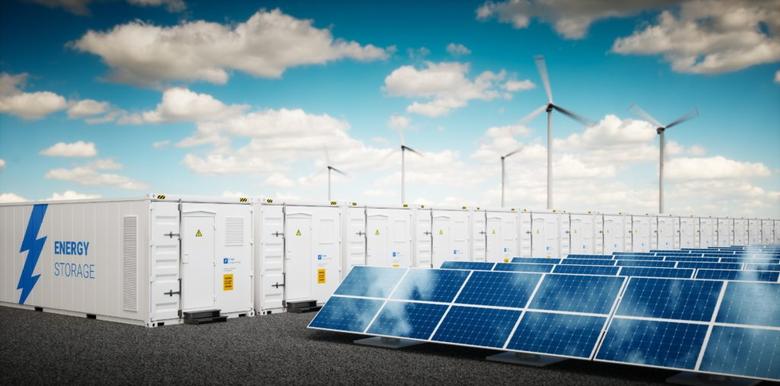
GREEN HYDROGEN COST

By Rakesh Sharma Journalist Freelance Journalist
ENERGYCENTRAL - There are several arguments to be made for integrating hydrogen into the electrical grid.
The gas is easily available in nature and relatively inexpensive. While hydrogen in its natural state is not a conductor of electricity, it can become a carrier, even a super conductor, of electricity at the correct pressure and temperature achieved through electrolysis. Transportation of hydrogen also does not require extensive infrastructure since existing natural gas pipelines can be used for the purpose.
But the initial excitement over hydrogen's use as an energy carrier during the 1980s died down quickly in later years. Meanwhile, other costlier technologies, such as battery storage, have stolen a march and become viable enough for grid usage.
In recent times, however, hydrogen has diffused back into the spotlight. More specifically, a spate of recent articles have touted its use as a baseload resource in grid balancing. Excess energy produced by renewable energy sources undergoes electrolysis and is stored as hydrogen. During times of low energy production, as can be the case for renewable energy sources, hydrogen is used as a carrier to transport energy from one region to another. The emerging ecosystem around hydrogen-powered electric vehicles and the existing natural gas network could play an important role in this effort.
The idea seems enticing and, even, viable until you consider the costs involved. They are substantial. An NREL study last year estimated that stack costs for a 1MW PEM (Proton Exchange Membrane) electrolyzers cost $237 per kilowatt. An annual production rate of 1,000 MW is required to bring down overall costs to $101 per kilowatt. Given the current state of competing technologies for the grid, those economies of scale for hydrogen electrolyzers will take time to materialize. Scale is another problem. The efficiency of electrolysers currently is also inversely proportional to that of loads. The more the load, the less efficient they are.
“Electricity prices in addition to the electrolyzer capital play a key role in determining the cost of hydrogen production,” the study’s authors write. But prices for renewable energy technologies are another deterrence to integrate hydrogen within the grid. While they claim to have reached price parity with fossil fuels, renewable energy prices are still fossil fuels by a wide margin still accounts for a small portion of overall electricity production. Renewable energy sources accounted for 11% of total energy consumption and 17% of electricity generation in 2018, according to the Energy Information Administration (EIA). Replacing renewable energy technologies with fossil fuels would defeat the entire purpose of the initiative since it would increase the overall carbon footprint.
Nuclear is another option and is actively being considered or implemented in several projects. For example, a consortium led by French energy giant EDF plans to link electrolyzers to nuclear plants to “produce enough hydrogen to meet a significant portion of the forecasted demand in the UK.” The idea is to harness the low carbon credentials of nuclear and hydrogen for electricity supply and baseload power. UK generates about 21% of its power from 15 nuclear reactors. But half of this capacity is planned to be retired by 2025, meaning EDF’s pilot tests will have to be successful in a short period of time to prove the viability of nuclear energy as a source of energy.
Related to this point are the utilization rates for electrolyzers. An electrolyzer situated close to renewable energy sources (but away from the grid) will not have as high utilization rates as one integrated into the grid and situated close to a power plant. Then there are other variables, such as policy and regulation, which need to catch up with hydrogen produced through electrolysis. For example, how will gas produced and stored using large electrolyzers be priced?
Researchers have stated that hydrogen is likely to be cost-competitive by 2035. But other technologies, such as battery storage, which have had a head start over hydrogen are more economical in the short term.
-----
This thought leadership article was originally shared with Energy Central's Load Management Community Group. The communities are a place where professionals in the power industry can share, learn and connect in a collaborative environment. Join the Load Management group today and learn from others who work in the industry.
-----












